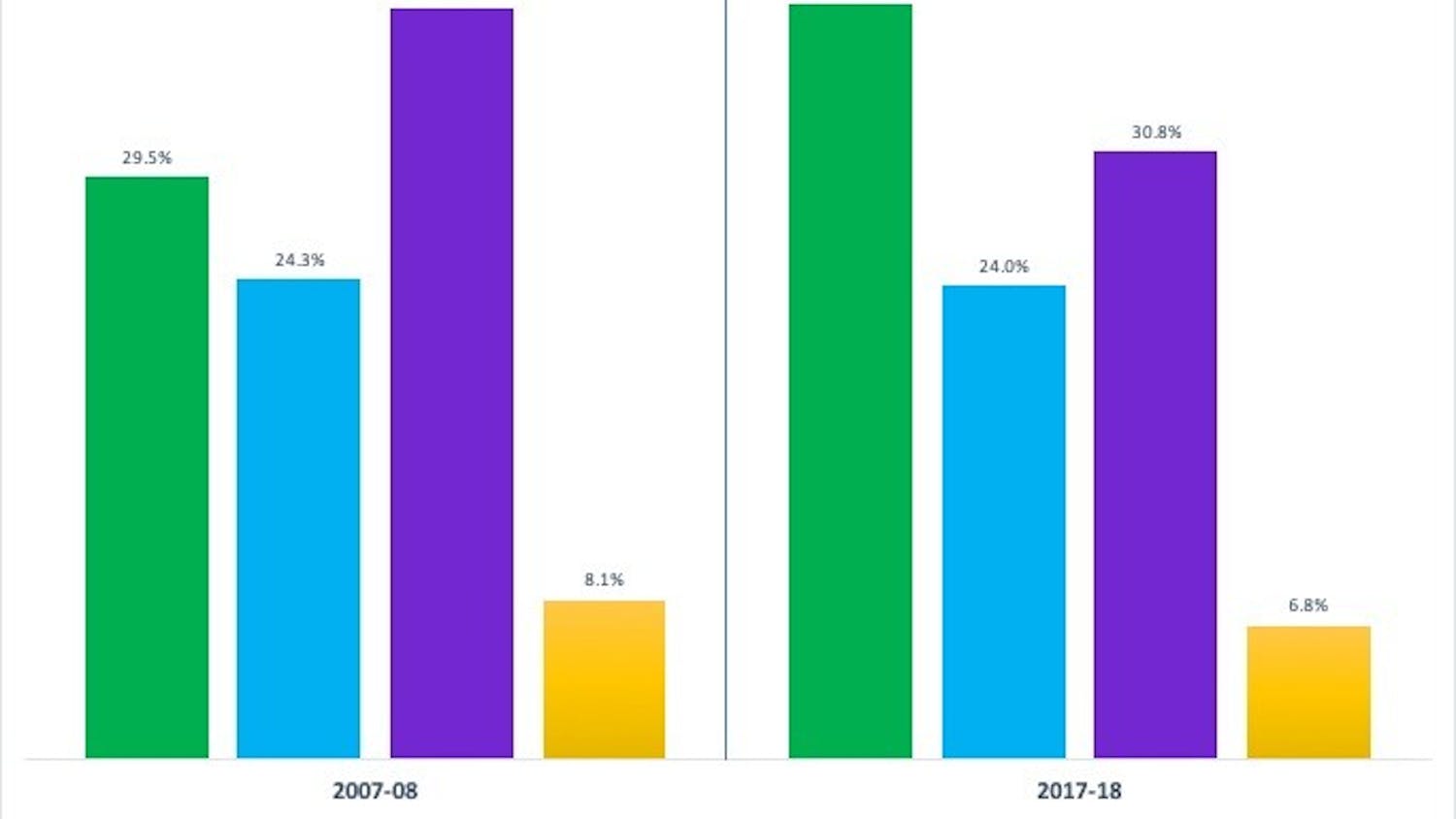$1.5 trillion. This stark number represents the current student loan debt falling on the shoulders of over 45 million borrowers, from current college students to adults who graduated decades ago.
Given the drastic financial challenges that are evidently present in students’ lives from the day they put down their college deposits, it is now more imperative than ever that America’s young adults increase their financial literacy. In particular at Dartmouth, a school known for feeding the incoming classes of prestigious business schools with alums scattered up and down Wall Street, it is important that the College make the most of its strong economics department by making a personal finance course requirement for all students.
The College deems a variety of course areas indispensably valuable, to the extent that they are distributive requirements that every student must fulfill to graduate. While Dartmouth graduates emerge well-versed in a foreign language, exposed to at least three world cultures and capable of swimming 50 yards across a swimming pool, there is no requirement that acknowledges the importance of personal finance, basic knowledge of how the stock market works or even how to pay taxes.
The lack of financial education in institutions of higher education can be traced back even further to the lack of exposure to dealing with money in high school. Currently, only 17 states have incorporated a personal finance course into their schools’ core curricula, and studies show that even this basic course is highly beneficial. A 2014 Federal Reserve report shows that students with a background education in personal finance went on to have credit scores that were seven to 29 points higher than students who did not take a personal finance course in high school. Given the profound effect that financial literacy courses have on high school students, imagine the ways such a course could benefit college undergraduates who have had more experience with money and are closer to applying these lessons in the real world, most imminently with student debt.
If Dartmouth were to require a course on personal finance, what would it entail? This course should focus on skills that are immediately relevant in students’ lives, or will be soon. For instance, with investment and stock market basics, students could make smart investments to compound their earnings even in their first few years out of college. Also, as simple as it seems, it is critical that students understand what is actually happening when they use their credit card: The money is not just taken from your bank account. Basic lessons about accounting for risk, building credit and accounting for interest will serve everyone well down the road.
Despite all of these benefits, there are still many who view personal finance courses as a waste of time. Dartmouth already has distributive requirements which can be satisfied by economics classes, raising questions as to whether it is worth the struggle to add another graduation requirement and take away from the classes students have left to explore outside their majors. As a liberal arts college, it is Dartmouth’s mission not just to transfer knowledge to the next generation, but also to cultivate a skill set in graduates that will make them successful in the real world. These skills include strong written and oral communication, analytical and creative thinking, and readiness to learn new concepts. These are valued for their versatility and wide-ranging applications no matter what field graduates choose.
Along the same line of reasoning, money is central in every adult’s life, no matter what field one chooses. While money does not equate to happiness, it certainly creates a nice sense of security, and learning how to handle money in college is an invaluable long-term commodity that is worth the addition of another distributive requirement. This personal finance requirement shouldn’t come at the cost of one of the pre-existing requirements. However, the myriad of real-life applications of economics sets it apart from other subject areas, making it as critical as writing, quantitative reasoning and other “life skills” necessary to graduate.
With the wealth of the mean Dartmouth student being far above the national average, their financial literacy is perhaps even more crucial than at other schools. It is about time we welcome an 11th distributive requirement: financial literacy.



